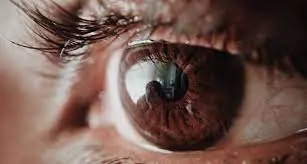In our modern digital age, many of us have developed the habit of charging our smartphones overnight, keeping them within reach even while we sleep. However, this seemingly harmless routine could put your health, safety, and the longevity of your device at risk. Recent warnings from tech giants like Apple and experts have shed light on the potential dangers, prompting us to re-evaluate our charging habits. Let’s explore these risks and learn how to minimize them.
The Hidden Dangers of Sleeping with Your Smartphone
While convenient, having your smartphone by your side at night can negatively impact your sleep quality and overall well-being. Here are some of the risks associated with this practice:
Disrupted Sleep Patterns
The temptation to check notifications, respond to messages, or scroll through social media feeds can delay your bedtime, cutting into precious sleep time. Studies published in the Journal of Clinical Sleep Medicine reveal that the blue light emitted by smartphone screens can disrupt melatonin production, the hormone responsible for regulating sleep cycles. This disruption can make it harder to fall asleep and may even exacerbate insomnia.
Blue Light Exposure
Smartphones emit blue light, which interferes with melatonin production and shifts your natural sleep rhythm. Research shows that exposure to blue light before bedtime can reduce melatonin levels by as much as 85%, leading to sleep difficulties and prolonged wakefulness.
Sleep Interruptions
Incoming calls, texts, or app notifications can disrupt your sleep if your phone isn’t silenced or set to “Do Not Disturb” mode. Even the slightest vibration or screen light can wake you during light sleep phases, leaving you feeling groggy and less alert the following day.
Psychological Impact
Keeping your phone within reach can increase stress and anxiety levels. Reading news or engaging with social media before bed can trigger emotional responses, making it challenging to fall back asleep. Additionally, the fear of missing out (FOMO) on messages or alerts can contribute to restless sleep. Studies from the University of Gothenburg found that heavy smartphone use was linked to increased stress and poor sleep among young adults.
Electromagnetic Radiation Concerns
While the long-term effects of electromagnetic fields (EMFs) from phones are still being debated, some research suggests potential risks like brain tumors or fertility issues. Keeping your phone out of the bedroom is a simple precaution to reduce prolonged exposure to these fields while you sleep.
The Risks of Charging Your Phone Overnight
Waking up to a fully charged phone may seem convenient, but charging your device overnight could come with hidden dangers. Apple and other tech experts have warned about potential risks, including overheating, battery damage, and even fire hazards.
Overheating Risks
Charging your phone in places where heat can’t escape, such as under pillows or blankets, increases the risk of overheating. The heat generated during charging needs a way to dissipate, and when blocked, it can damage your battery and, in extreme cases, pose a fire hazard. A firefighter from Kent Fire Rescue highlighted this danger in a viral video, cautioning against using cheap or faulty chargers, as they can easily overheat and start fires while you sleep.
Battery Degradation
Leaving your phone plugged in for extended periods, especially overnight, can cause gradual battery damage. While modern smartphones stop charging once they hit 100%, staying plugged in too long can still reduce your battery’s long-term health, leading to more frequent charges and shorter battery life over time.
Fire Hazards
Charging your phone in poorly ventilated areas can increase the risk of fire. Studies from the UK’s Electrical Safety First organization show that over half of electrical fires linked to devices were caused by faulty chargers or overheating during overnight charging. Non-certified chargers are particularly dangerous as they often fail to meet safety standards.
Apple’s Safety Recommendations
To help users reduce the risks associated with overnight charging, Apple has issued safety guidelines encouraging safer charging practices and better habits:
- Charge in a Well-Ventilated Area: Always charge your phone on a flat, hard surface where air can circulate freely. Avoid placing it under pillows or blankets.
- Use Certified Chargers: Stick to Apple-certified or “Made for iPhone” chargers to ensure both safety and efficiency. Avoid using cheap or unverified chargers that may pose a risk.
- Monitor Charging Sessions: Ideally, charge your phone while you’re awake, so you can keep an eye on it during the process.
- Set Charging Limits: iPhones come with features like “Optimized Battery Charging,” which limits charging to 80% overnight and completes the charge closer to when you wake up, helping to protect battery health.
Developing Good Sleep Hygiene Without Your Phone
Breaking the habit of using your phone before bed can do wonders for your sleep quality. Instead of scrolling, try reading, meditating, or practicing simple breathing exercises to help your body wind down.
Keeping your phone out of reach, like charging it in another room or across the bedroom, can reduce the temptation to check it during the night. If you need to keep it nearby, enable night mode or blue light filters to soften the impact.
Turning off notifications or enabling “Do Not Disturb” mode can also minimize disruptions, allowing you to rest more peacefully. Replacing screen time with relaxation techniques will make falling asleep easier and your sleep deeper.
Charge Safely, Sleep Soundly
Charging your phone overnight might be convenient, but it comes with risks like overheating, battery damage, and potential fire hazards. Following Apple’s safety recommendations, such as charging in a well-ventilated area and using certified chargers, can help minimize these dangers.
Beyond charging habits, smartphones can also disrupt your sleep with blue light, notifications, and stress. By creating a phone-free bedtime routine and embracing healthier habits like reading or meditation, you’ll not only protect your device but also improve your sleep quality and overall well-being.
Making small changes, like keeping your phone out of reach or turning off notifications, can have a significant impact on how well you sleep. So, take those steps today, and enjoy a safer, more restful night’s sleep.


























